We hope you’ve followed our checklist to pack your hospital bag, and have read our Article on Dad’s Role in Labour and Delivery. In continuation of the Labour and Delivery series, this Article is an exhaustive Dad Guide on What Happens After Delivery, the things to expect, and your role as the father to a newborn!
Newborn Care After Delivery – Health Checkup
Apgar Score
Regardless of whether your partner has had a vaginal delivery or a Cesarean section, the moment your baby arrives, the medical personnel are likely to take him/her for a series of tests by a paediatrician such as checking their weight, monitoring urination, and calculating the Apgar score. It’s like a report card for newborns, assessing their well-being in the first few minutes of life.
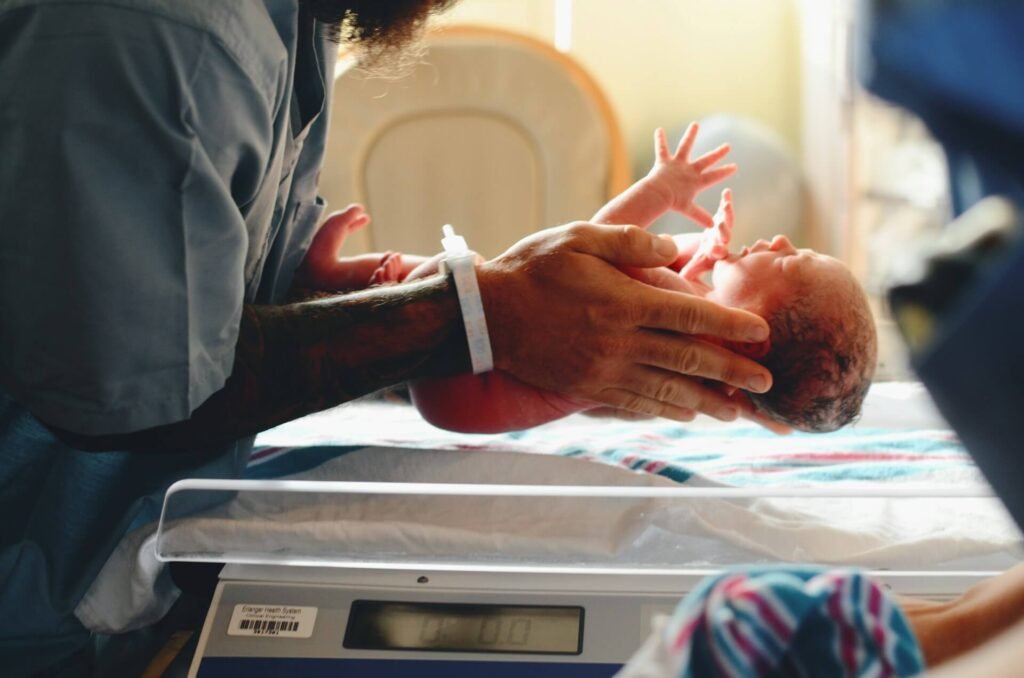
What Does It Measure?
- Appearance (Skin Color): The Apgar score checks your baby’s skin color. Pink is the ideal hue.
- Pulse (Heart Rate): It monitors your baby’s heart rate. A strong, regular beat is excellent.
- Grimace Response (Reflexes): Your baby’s response to stimulation will be checked. The stimulation may be a gentle pinch.
- Activity (Muscle Tone): The score evaluates muscle tone, looking for strong, active movement.
- Respiration (Breathing): It checks how well your baby is breathing. Strong, crying breaths are great.
The Apgar score happens at one minute and again at five minutes after birth, allowing the medical team to ensure your baby is transitioning well into the world.
Your Role
- Let the medical personnel do their job, and congratulate the new mom on the amazing job she’s done!
- Assist with any immediate postpartum care.
- Handover the clothing or sheet you want the medical personnel to drape your newborn as they bring your baby to you.
- Be ready to receive the baby once everything checks out alright.
General Tests and Assessments
In the hours and days following childbirth, your baby will undergo several tests and assessments to ensure their health and well-being.
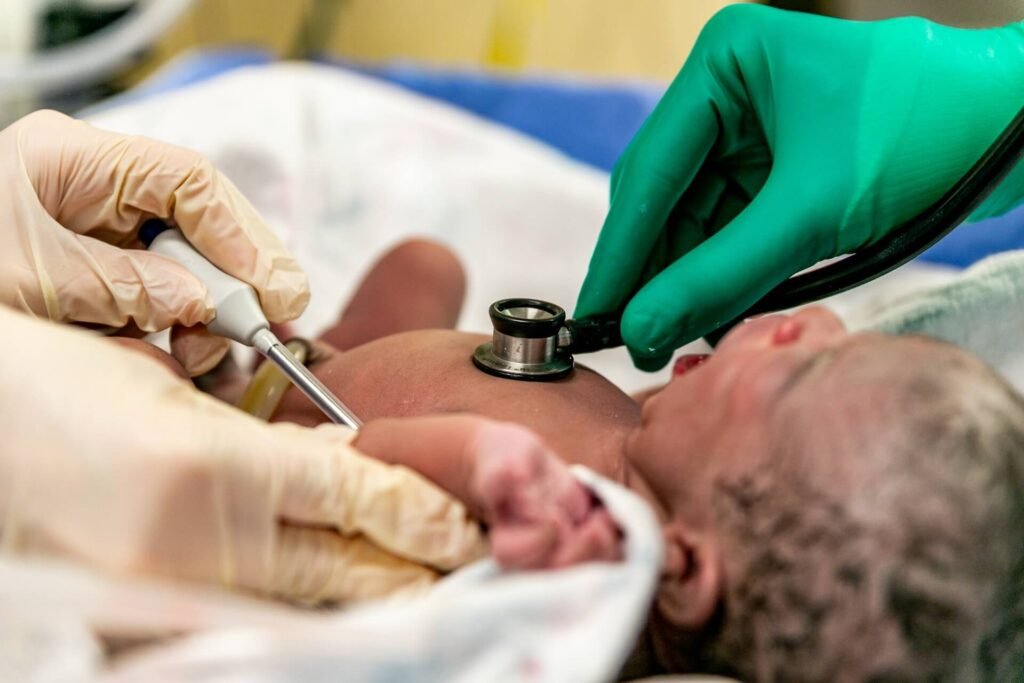
What to expect
- Weight and Length: Your baby’s weight, length, and head circumference are measured to monitor growth.
- Jaundice Assessment: A quick check for jaundice, a common condition caused by elevated bilirubin levels.
Hearing Tests for Your Baby
Newborn hearing tests are typically conducted before you leave the hospital. These quick and non-invasive tests aim to ensure your baby’s hearing is on track.
How It Works
- A soft probe is placed in your baby’s ear to measure their response to sound.
- If a potential hearing issue is detected, further evaluation will be recommended.
Early detection and intervention, if needed, are essential for supporting your baby’s language and communication development.
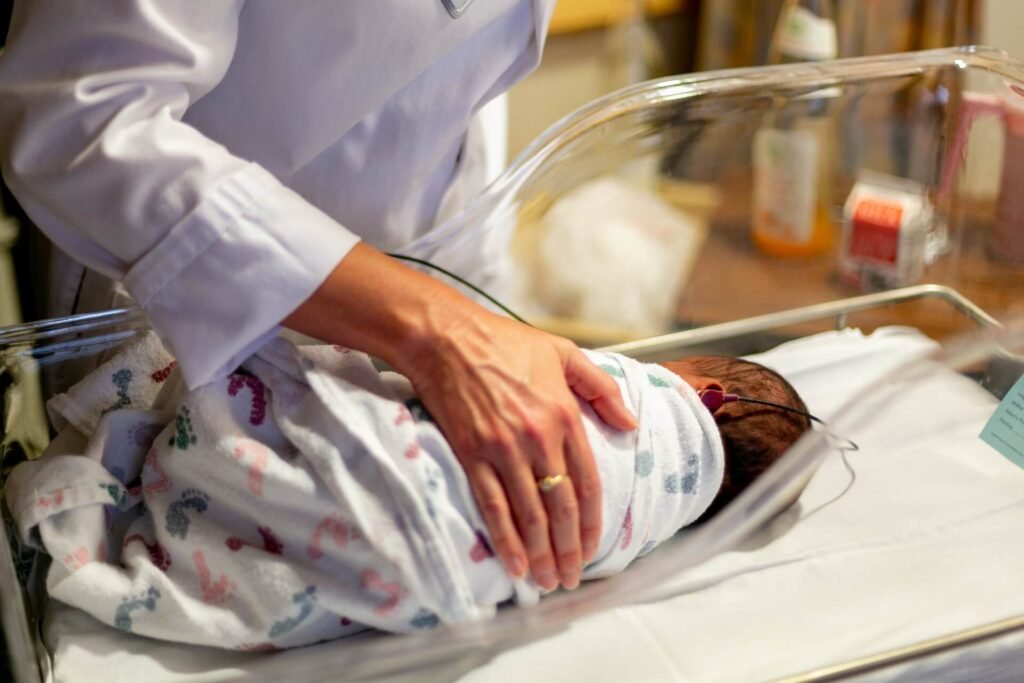
Usual Health Complications
In the coming section, we’ll look at a couple of health complications that may happen with your newborn – this is based on what my partner and I went through with our firstborn and is not meant to be exhaustive.
Respiratory Distress
It is possible your baby may have some respiratory distress upon delivery, for various reasons. This is something we faced, and I’m penning down our experiences here.
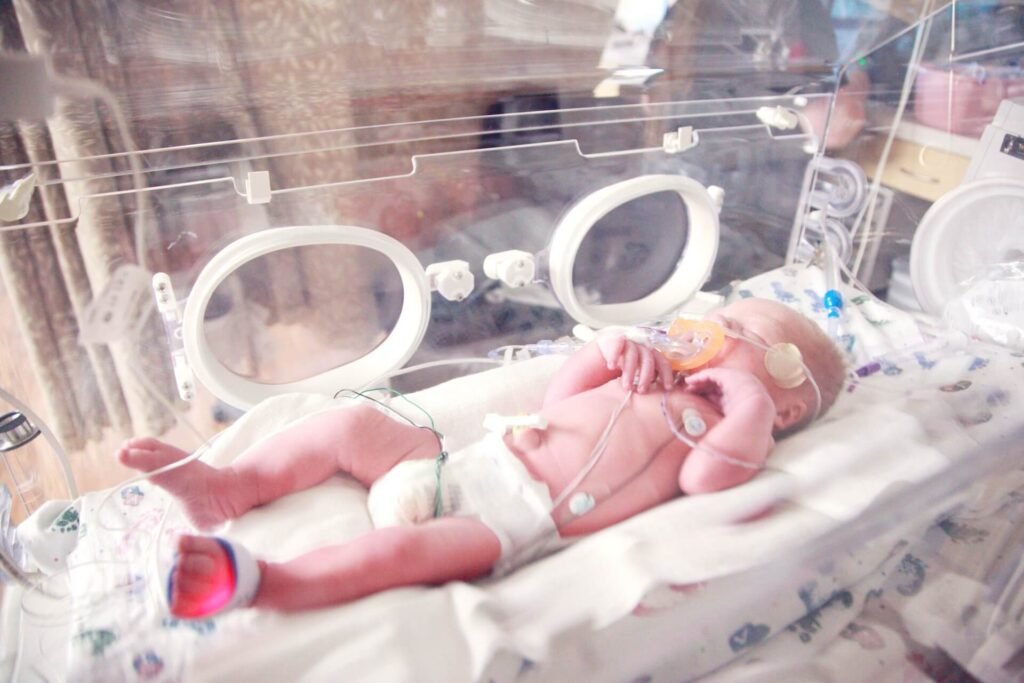
What to expect
- In the event your baby is in respiratory distress, and there are other complications such as incomplete lung growth due to early labour, your baby will be taken by the medical personnel to the NICU where they will administer oxygen using a cannula.
- In the event this does not suffice, the doctors will put your baby on a CPAP machine, which provides respiratory support to the baby. The duration of the CPAP will depend on various factors and it’s best discussed with your doctors. However, the general duration of a baby being on a CPAP machine is a few hours to 1-2 days. Our baby was on the CPAP for a couple of hours, and was then taken off it once their breathing stabilised.
- In the event the respiratory distress continues despite the baby being on CPAP, a ventilator may be required.
Jaundice
Jaundice in newborns is fairly common and does not generally require attention at the hospital, unless there are aggravating circumstances such as low birth weight, or the baby having Intra Uterine Growth Restriction (IUGR) / Fatal Growth Restriction (FGR), or a high bilirubin count. Newborn jaundice generally resolves itself in a couple of weeks.
What to expect
- Where the baby’s bilirubin count is high, the baby will be generally be subject to Phototherapy, which is a special light that helps the baby’s liver break down the bilirubin.
- Phototherapy involves placing the baby in a cot or incubator, their eyes being covered, and a light with blue hue being provided.
- Generally, the bilirubin count is taken every 4-6 hours and the baby is subjected to Phototherapy for a couple of days. If the bilirubin count does not fall, intensified phototherapy may be required.
- During Phototherapy, the baby may not be picked up from the cot/incubator and the baby’s temperature is monitored to ensure dehydration does not occur. Phototherapy is only stopped to allow breastfeeding and nappy changes.
Postpartum Care for Mother
After childbirth, your partner will need time to recover and your role as a support system continues. The first few hours after delivery are a whirlwind of emotions and medical assessments of the mother and the baby. Ensure your partner has everything she needs to recover comfortably, and be there to assist with newborn care.
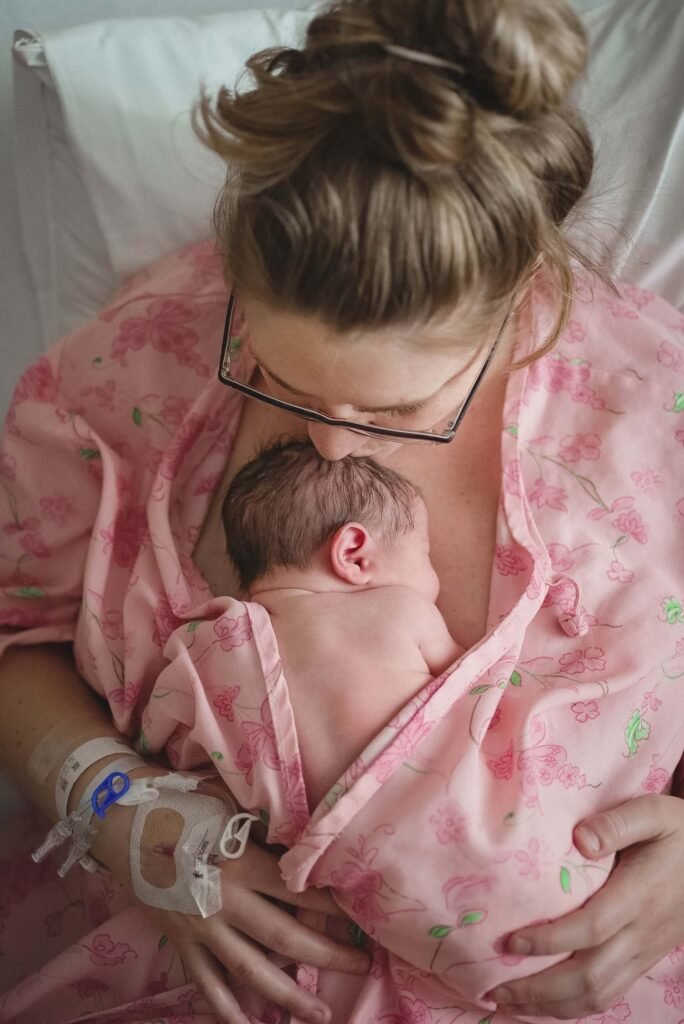
Your Role
- Be your partner’s emotional rock, providing love and encouragement.
- Understand that she might experience a wide range of emotions.
- Share your own emotions and experiences, fostering a deeper connection.
- Celebrate the birth of your baby and bond as a new family.
- Be attentive to your partner’s physical and emotional needs.
- Encourage rest and bonding time with your new family.
Lactation Support and Feeding
Lactation support is crucial for new moms and newborns. In the hours following childbirth, your partner will be encouraged to initiate breastfeeding or formula feeding, depending on her preference and circumstances. Generally, a lactation consultant will visit you in the room to provide guidance on breastfeeding techniques.
First Feeding
The first feed after childbirth stimulates your partner’s body to produce colostrum and begin lactating to feed your baby. Remember, your baby’s stomach is very small at this point so they will feed very little.
Your Role
- Be your partner’s emotional rock, providing love and encouragement.
- Understand that she might not lactate immediately and support her.
- Be attentive to your partner’s physical and emotional needs.
Kangaroo Care
Kangaroo care or skin to skin contact is highly encouraged to promote breastfeeding and foster bonding between the parents and the baby.
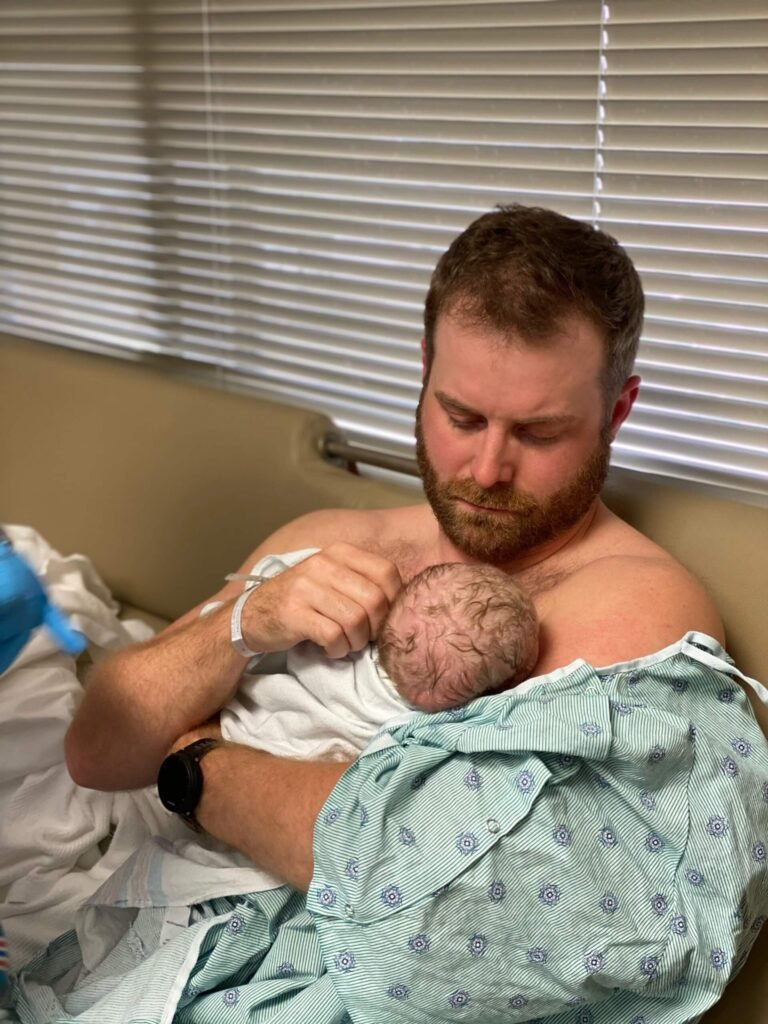
Benefits of Kangaroo Care
- It decreases stress in the newborn and the parents.
- It allows you to touch, see, smell and hear the baby.
- It has been proven to stabilise the baby’s body temperature, heartbeat, breathing and blood oxygen levels.
- It helps with strengthening the baby’s digestion and immune systems.
- Kangaroo care / skin to skin contact is not restricted to moms alone, and dads are encouraged to do this!
Diaper Changes, First Bath, Swaddling
- Your newborn will poop frequently and you will regularly need to change nappies. If you’ve never changed a diaper, the medical staff at the hospital will show you how it’s done. You’ll get the hang of it soon enough as they go through diapers like nobody’s business!
- The medical personnel at the hospital will also show you how to bathe the baby.
- Finally, they will teach you how to swaddle and burp the baby so you are prepared to take your newborn home and hit the ground running.
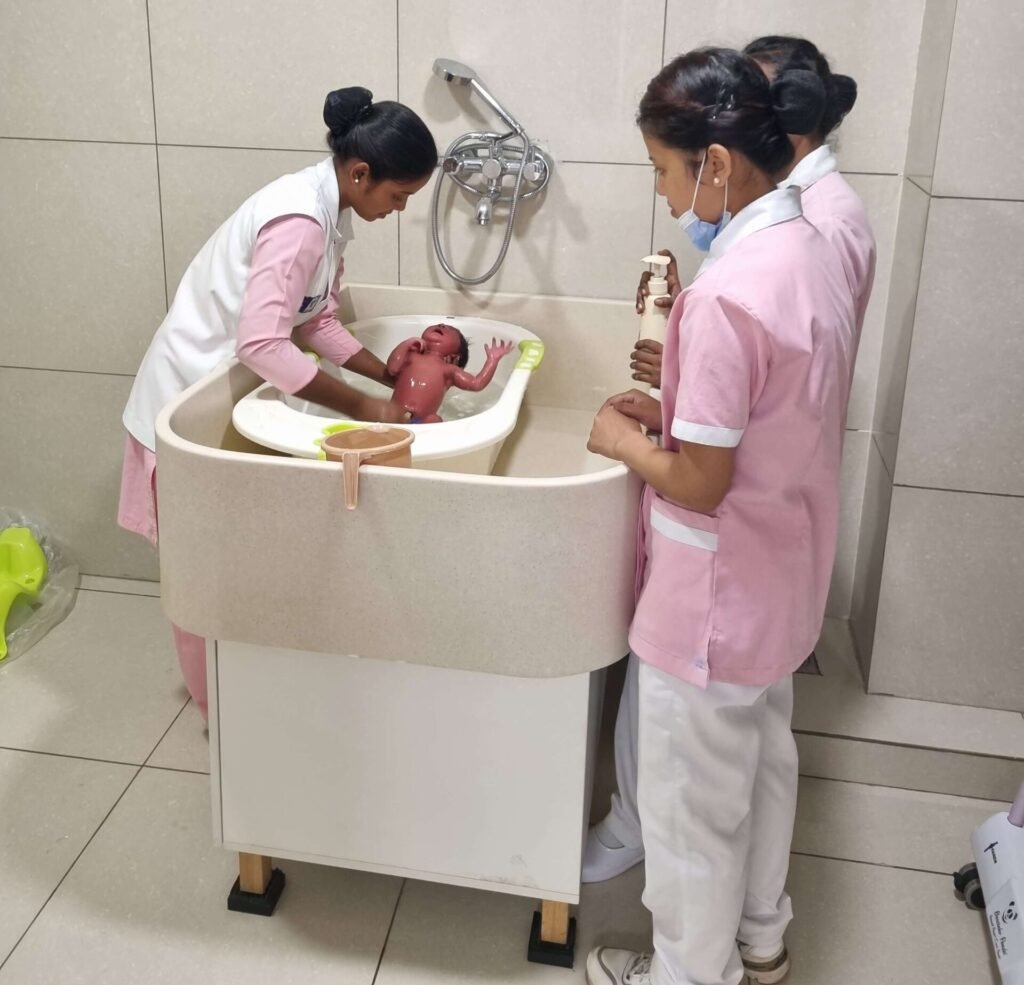
Newborn Vaccinations
In India, one dose of BCG, Hepatitis B, and OPV (Polio vaccine) are administered at birth. Make sure to collect your baby’s vaccination sheet before you head home. This sheet will contain details on their birth weight and height along with the vaccinations administered. This sheet will be used to keep track of your baby’s growth and vaccination schedule.
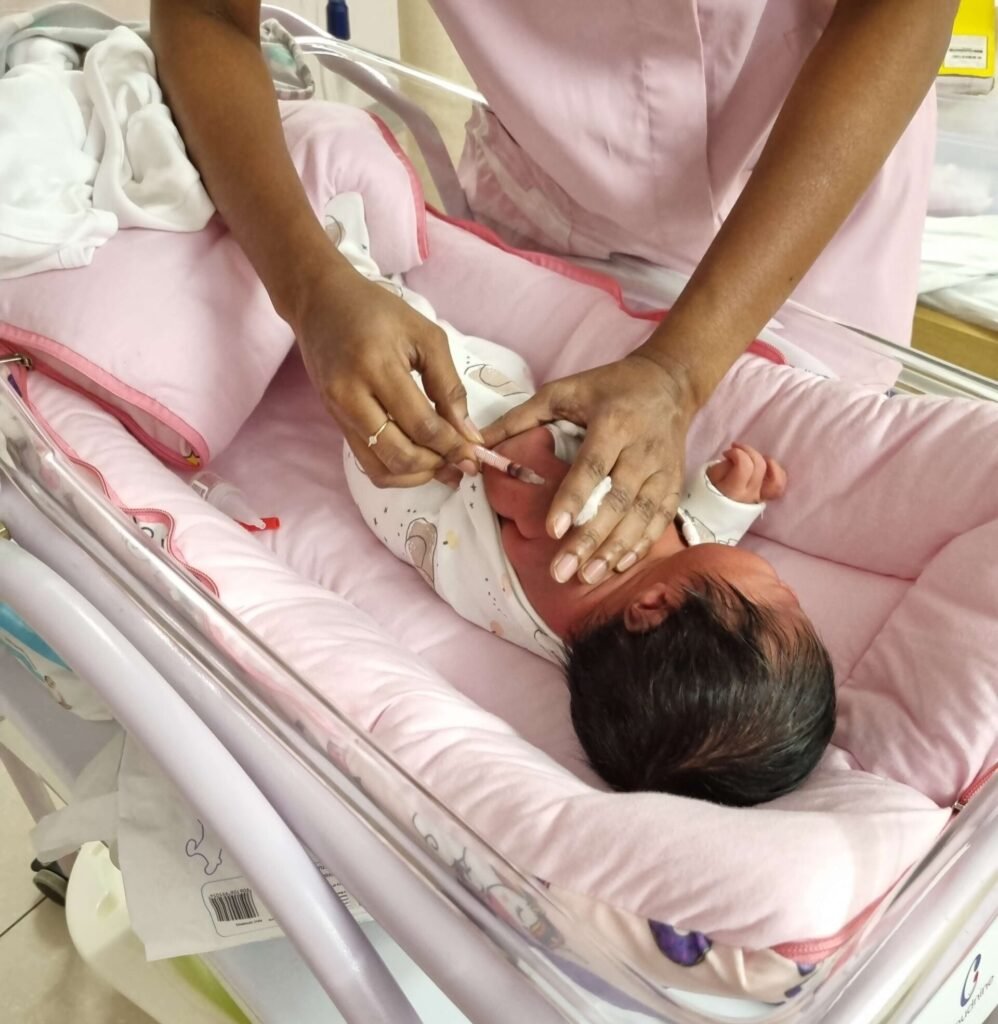
Heading Home after Delivery
When your partner and your baby are discharged from the hospital, it’s time to head home and start a wonderful life as a family.
Your Role
- It’s okay to feel overwhelmed, and scared for your little one. It’s okay to wonder how wild it is that you go home now and there’s a baby going with you. It happens to everybody!
- Fill the relevant forms to register the birth of your newborn. You will likely need to head to the hospital at a later date to collect your child’s birth certificate.
- Collect all relevant details from the hospital, including copies of the bill and the vaccination records!
- Make sure your newborn is safely tucked in a car seat as you head home. Read our Guide on Types of Car Seats to know which one to pick.
- Understand that your partner is in recovery, and that postpartum is a heady phase of change for her. Your support and understanding here is vital.
Conclusion
The days following childbirth are a whirlwind of emotions, tests, and adjustments as you welcome your newborn into the world. Understanding what happens post delivery will help with a smooth transition out of the hospital and into parenthood.
We hope this Article on What happens After Delivery has proved useful to you in this regard. Be prepared, stay informed, and enjoy every moment as you embark on this incredible journey with your newborn!
Best of Luck!! You’ve Got this!
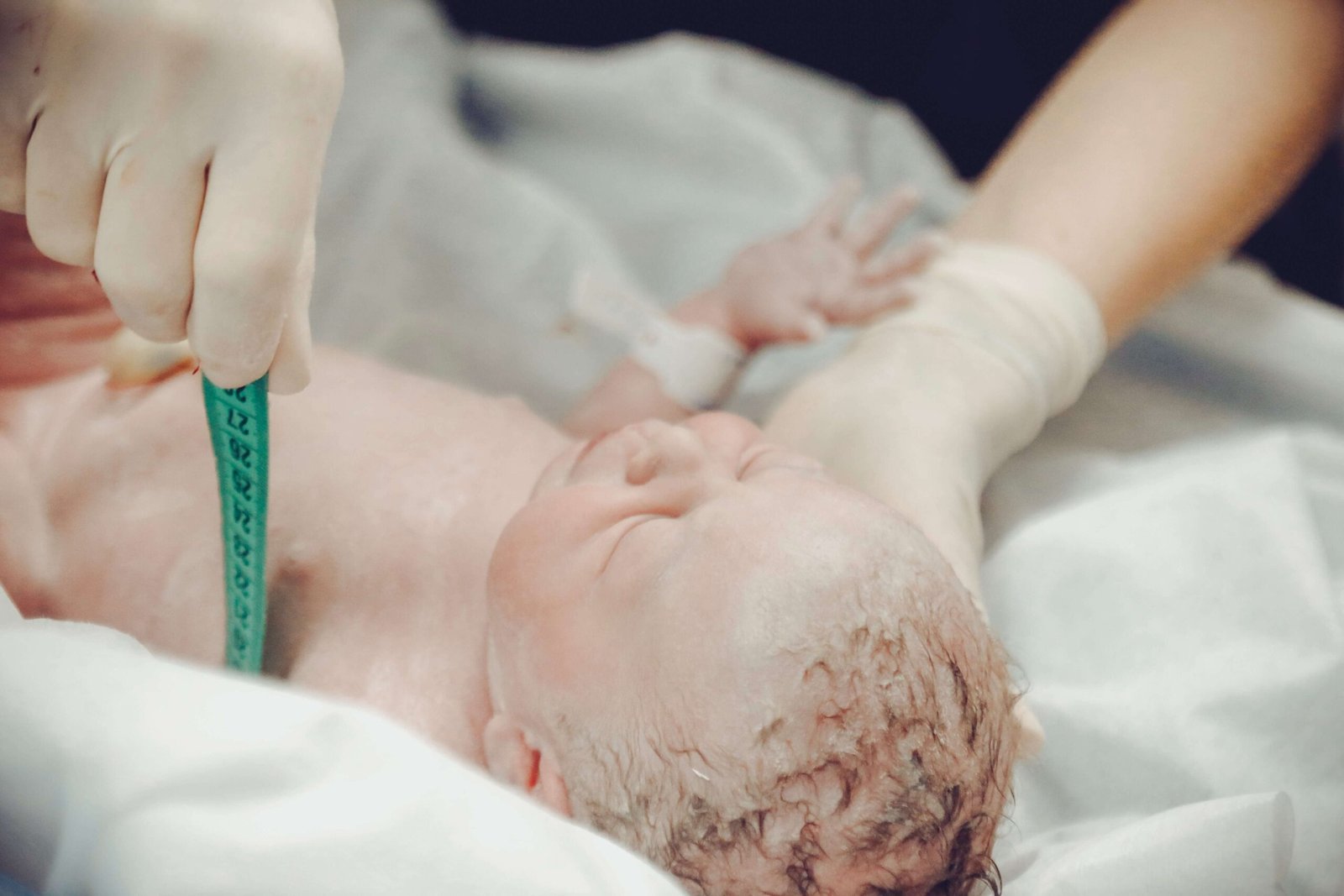
Leave a Reply